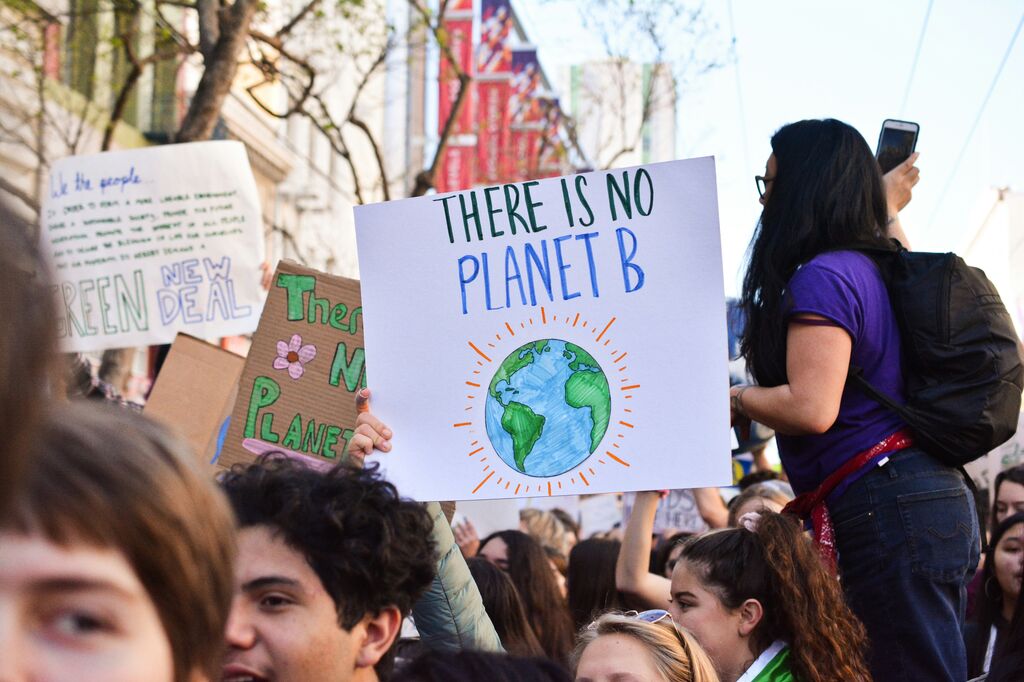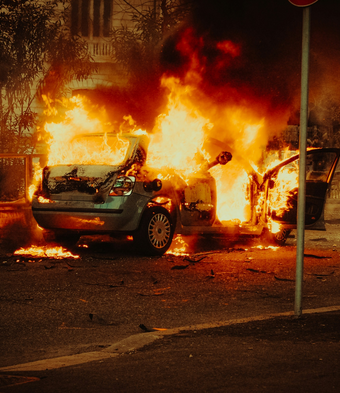A £28bn mistake?

The Labour Party’s timing this week was not great. It announced it was rolling back from a pledge to spend £28billion a year on green policies on the same day the EU's climate service announced that global warming has exceeded 1.5C above pre-industrial levels across an entire year for the first time.
But, such is politics. Sometimes there are good days when bad news gets buried, and other times when it just can’t be controlled. However, rather than consign one story to the “it’s just another political U-turn” box and the other to the “too big, too complex, too difficult” box, I think we can engage with both more constructively.
First let us establish some biblical principles to apply across both stories and then apply them.
First, God’s people should care about what’s happening to the environment.
We care about the environment because we care about God’s creation. As Christians we have a unique and distinct calling as stewards over God’s creation, to be carers, cultivators and creators.
As A Rocha, an evangelical charity that cares for creation, states in its theological commitment, “God does not abandon creation, but in love continues to sustain and renew the Earth and all of creation. As recounted in the biblical narratives, God reaches out to a wounded world both in judgment and with the anticipation of renewal.”[1]
Therefore, we have a unique hope of Creation redeemed and renewed through Jesus’ death, resurrection and return, and a mandate as a global and local church to live lives sympathetic to the impact we have directly and indirectly on our neighbours.
Whatever your views on the causes of climate change, the evidence shows that there is something significant happening, and that human activity plays a major role. We should not be ambivalent in the face of the evidence and knowledge that our current actions are harmful. We should not be passive when we have the ability to do good.
That means it is good to examine what different Parties are committed to doing, and how they live up to these commitments in between elections. It is also good to consider what your devolved administration or local council is doing on creation care, and what your responsibility is as well.
The environment will not be every person’s top priority, but that does not mean we should be ignorant or dismissive of how important this issue is. It is right that we take into consideration, and hold to account, government and political leaders’ views on the environment. So, as you consider who to vote for, weigh up what each Party says – or does not say – about the environment, and how committed – or not committed – they are to their policies on this issue.
Second, we care about people keeping their word.
We believe in a promise making God who keeps His word. He makes covenants with His people, including one that covers all of Creation (Genesis 9), and He keeps His word even when we are unfaithful and circumstances change. Made in His image, we are called to be like God, and that includes being known as those who keep our word. It also means we value others who keep their promises, and when a person breaks their word, it damages their integrity and undermines the common good.
Of course, this applies to Christians as a way of witnessing our love of God, but being trustworthy in keeping our word is good for all relationships, as well as society. Politics loves semantics: one day’s pledge can be tomorrow’s ‘intention based non-binding commitment, dependent upon economic conditions.’ But the bible makes no such distinction, and states that “it is better not to make a vow than to make one and not fulfil it.” (Ecc. 5:5)
How can we encourage our politicians and Government to keep their word? One way is to have an honest dialogue about what can be promised and what cannot. Sometimes all of us make promises in order to please, rather than serve, others. We make commitments based on what seems the right thing to say or do knowing that we may not be able to fulfil that commitment. It is a challenge for us as Christians not simply to hold politicians to account for what they promise, but to help them make wise and meaningful pledges and avoid commitments that may be undeliverable or seen as expendable.
Third, we care about honesty and truth.
The principle of keeping our word means that we care about honesty and truth, however difficult or complex it may be.
The debate about the environment is difficult and complex. So too is the one about economic growth and public spending. All of us crave simplicity. We want to believe that the brokenness of our world can be healed simply and cheaply. It cannot. We do not have a magic wand to solve many of the most difficult local, national, and international problems, and neither does any politician. We should be questioning any who say they do.
As Christians our eyes have been opened to God’s hope, but we are also super realists about the extent and impact of sin. We should not be simplistic people, not like children tossed around by false hope, empty promises, and the alure of some secret knowledge offered through conspiracy theories.
We embrace and love truth because we believe it will ultimately point to the one who is truth and knows what we need for a good life. We do not need to be shielded from the difficulties we face in talking about the brokenness of the world, and the complexities of fallen creation. Indeed, we need to be the ones who hunger for the truth and offer hope and solutions – which will often mean working hard, being sacrificial, and committing to seeing things through over the long term.
This means we respect good science and honest research as a means of enhancing our understanding of God’s creation and our role as stewards. I want my government to pursue good policies and promote good laws, and they will be based on evidence and knowledge deployed wisely. I do not want empty rhetoric from politicians, I want the truth, however difficult, and a credible plan to tackle it. God’s word will have much to contribute to these debates and will help to form good laws and policy. CARE will always be there alongside our political leaders to share this with them, but you and I can also witness wisdom to our local representatives.
Yet there will be hard decisions regarding trade-offs and sacrifices on good laws and policies. An example being Labour, this week, clearly deciding that there is a trade-off between standing by a pledge to spend a specific amount on green policies and their desire to be seen as economically responsible.
In many ways it is another example of how the debate about green polices versus other areas of policy can be one of all or nothing. We are “all in” on green policies, or not at all. Too often we are resigned to believing that we can solve a problem, or instead do nothing about it.
We need to support politicians and political debate that is honest about difficult decisions, trade-offs, and sacrifices that need to be made for the long-term wellbeing of ourselves and our neighbours. What is good and right may be a cost to ourselves, but it is rightly loving our neighbour. Again, Christians more than anyone else should be role modelling sacrificial service and loving our neighbour at a personal and national level.
Fourth, we believe in good government that cares for our wellbeing and safety.
I hope that readers of this article are both familiar with and support this principle – that government is an institution ordained by God to restrain evil and promote good. God wants His people to live in peace, safety, and prosperity; to live good lives ordered by good government. Government is the institution that profoundly impacts how we live together, now and in the future. It is a steward of our collective wellbeing and care, and at its best can accomplish far more good than we could achieve as individuals.
It seems clear that if we are to tackle the environmental challenges of today and tomorrow it would take a collective effort of government action, international action, as well as individual responsibility. Christians have a key role to play here because we understand the limitations and potential of the individual heart and institution of government; we understand that there is good to be done and redemptive action to be pursued, but the complete healing, shalom and renewing of Creation awaits Christ’s return. We need wise government in this respect, that knows when to act and when not to act, when to compromise and collaborate, and when to act unilaterally. Let us pray that our current and future Governments are wise in this respect.
So, as we consume news of another political U-turn and of bad, often incalculable news about climate change and environmental damage, let us not give up our hope. Let’s be those who do not shy away from the debate by stepping out of the public square. Instead let’s step up to proclaim the values and truth that we want to guide our public square, government, and life together in God’s creation.






